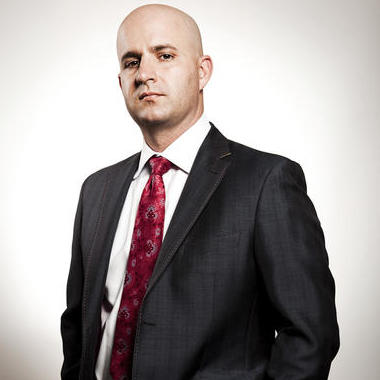New York City Non-Profit Attorneys & Lawyers
How it Works

Neil Gandhi
.jpg)
Baruch Gottesman

Dmitriy Ishimbayev

Heather N. Bowen Pascual, Esq., Cipm

Thomas Bark

Alejandro Maher
.jpg)
Eric Leander

William Barlow

Eric Goldman

Neil Fridman

Dr. Lydie Louis

Outside Legal Counsel Llp

Donya Gordon

Andrew Sachs

Odelia Powell

Thomas Wolinetz

Maureen Pritchard

John Mattiace
.JPG)
John Benemerito

Arthur Owens

Matthew Herlihy

Robert Dipaolo

David Kolodny

Julian Cordero

Paul Mcculloch

Bettina Eckerle

Anthony Crisci

Samuel Gray

Gary Ross

Laura Neish

Danny Jiminian

David Slater

James Burrell II

Patrick Murdoch

Spencer Wolff

Karen Bhatia

Cliff Schneider

Michael Jacobson

Kwame Leslie Dougan

Sarah Koper

Michael Zussman

Naveen Thomas

Mark Moran

Maribeth Lemen

Christine Hogan

Jeffrey Fucci

Stephanie Emanuel

James Day

Timothy Giordano

Shelley Klein

Michael Hatchett

Megan Eiss-Proctor

Vincent-Pierre Fullerton

Andrew Lee

Tomer Stein

Michael Springer

Stephen Ukman

Daniel Marcus

Harry Friedberg

Judie Saunders
.JPG)
Kathryn Hurley

Andrew Read

Haig Panossian

Shlomo Himmel

Ngoc Nguyen

Julienne Verdi

Antonio Miguel Ocasio

Vadim Daynovsky

Stephanie Cooper

Gregory Skiff

Erica Gilerman, Esq.

Allen Rothman
 FB2.jpg)
Cheryl Mitchell

Peter Brooks

Jason Gang

Allen Yusufov, Esq.

Todd Kulkin
Darren Marks

Nadia Munoz

Timothy Mcnamara

Craig Delsack

Biana Borukhovich, Esq

Nicholas Harris

Adam Berkey

Umair Kazi

Paul Lee

Jennifer Hope Bernstein

Erica Gilerman

Christopher Hoffmann

Geoffrey Weg

Evan Balmer

Ivan Raiklin

Jocelyn Kelly

Sebastian Zar

George Naggiar

Karén Tonoyan

Mary Madeline Roberts

Nicole Cueto

Zachary Meyer

Andrew Isaac Cohen

James Hsui

Elizabeth Oyen

Pantea Maddux
New York City Non-Profit Lawyers
Why Hire a Nonprofit Lawyer?
When your nonprofit organization needs advice on legal matters, you should hire the best nonprofit lawyer you can find in New York. These legal professionals understand the details of your organizational structure, and they know the financial and structural challenges your organization faces.
Some nonprofit attorneys work with charitable organizations, while others specialize in community groups or professional associations. When you work with one of the best nonprofit lawyers in New York, you can feel confident that you have a knowledgeable, experienced professional on your side. This increases the chances of tackling issues proactively and resolving concerns effectively.
Experienced nonprofit lawyers can advise about the following types of issues:
- Corporate Structure: A nonprofit organization can choose from several corporate structure types, but not all will help meet the objectives of the founders. A top nonprofit attorney can ensure that you select the right structure to establish a solid foundation.
- Tax Status and Compliance: Selecting the right tax status is essential for nonprofit organizations. New York nonprofit lawyers can help you understand which status you qualify for.
- Mission Statement: Experienced nonprofit attorneys can assist your organization with drafting a mission statement that will shape your direction for decades to come. Lawyers can advise about what to leave out and what's necessary to include.
- Governance Structure: Knowledgeable nonprofit lawyers can help your New York organization decide on the right governance structure. This could include number of directors, necessary qualifications, and voting requirements.
- Board of Directors: After election, nonprofit lawyers can ensure that your board of directors understands their legal responsibilities and how to mitigate personal risks.
How to Find the Best Nonprofit Lawyer in New York
When looking for the best nonprofit lawyer in New York, search for attorneys licensed to work in New York State. Lawyers must have either a J.D. degree from an accredited law school or a combination of law school study and approved experience in the legal field before passing the New York State Bar Exam.
Do your research to find the best nonprofit lawyers in New York:
- Check the New York State Unified Court System to make sure any lawyer you want to work with is a current member. To remain active members of the New York State Bar, lawyers have to complete continuing legal education courses to keep their skills up to date.
- Consult with the Grievance Committee for the appropriate Appellate Division of the New York State Supreme Court to find out if a lawyer you're considering has any grievances or misconduct complaints on file. Top nonprofit attorneys in New York also tend to have clean records.
- Read blurbs about each lawyer you might work with. This will tell you if the lawyer's background and focus areas meet your organization's needs.
- Find a firm that gives back to the community. Some of the best nonprofit lawyers in New York are actively involved in the local community, so they interact with organizations from more than just the business side.
Choose the most compatible nonprofit lawyers in New York for your organization:
- Industry Specialization: Top nonprofit attorneys may have a range of experience working with various types of nonprofit organizations. If you need legal assistance with an issue that's specific to your industry, find a lawyer who specializes in your unique concerns.
- Case Oversight: Experienced New York nonprofit lawyers often work with legal teams to handle cases and tackle workloads. Make sure you know whether your lawyer takes on cases solo or if he or she supervises a team of paralegals and legal assistants. If your lawyer takes the team approach, understand how much oversight he or she offers.
- Communication Style: Some top-ranked nonprofit lawyers communicate with clients on a daily or weekly basis, while others only email or call when a major development happens. If you need frequent updates about your case or if you have expectations about communication, make sure you know how your lawyer operates.
Questions for Nonprofit Lawyers
No matter what type of legal matter your nonprofit organization is facing, an experienced attorney can help. Get the legal help you need from the top nonprofit lawyers in New York.
- How many years have you practiced nonprofit law, and what are your specialties?
- How many cases have you handled related to my organization's industry?
- What is your firm's success rate?
- What is your fee structure, and how much will my organization's expenses total?
- Do you have any conflicts of interest that interfere with my case?
- What strategy do you recommend to resolve my case quickly and efficiently?
- Does my case have to go to court, or can we take another approach?
- How do you intend to resolve my case, and what are the likely outcomes?
- How long do you think it will take to resolve my case?
- How much input do you need from me to build a case, and what will my role be?
Why use UpCounsel to hire a New York City Non-Profit Attorney?
Average experience
You always get experienced professionals and high caliber work.
Faster
Your work gets done quickly because professionals are always available.
More cost effective
We use technology to cut traditional overhead and save you thousands.
UpCounsel has been talked about in:
Legal Services Offered by Our On-Demand New York Non-Profit Attorneys
On UpCounsel, you can find and connect with top-rated New York non-profit attorneys & lawyers that provide a range of non-profit law services for startup non-profits to more seasoned non-profits around the city of New York. Any of the top-rated New York non-profit lawyers you connect with will be available to help with a variety of your non-profit legal needs on-demand or on an ongoing basis.
From the forming of a non-profit organization to obtaining tax-exempt status from the IRS, to complying with federal and state laws governing fundraising and operations, the advice of experienced New York non-profit attorney is crucial throughout each stage of your non-profit’s growth. Whether you are forming a 501(c)(3) or 501(c)(4), you can easily hire an experienced New York non-profit lawyer on UpCounsel for your on-demand or ongoing non-profit legal needs today.
Improve Your Legal ROI with Affordable Non-Profit Attorneys that service New York City.
What Our Customers Have to Say
"UpCounsel gives me access to big-firm lawyers minus the big-firm price tag. I work with several attorneys on the platform and there are never surprises...I always receive quality legal work at competitive rates that larger firms simply cannot match."
"Every startup needs to know about UpCounsel. We found great attorneys at great prices and were able to focus our resources on improving our business instead of paying legal bills."
"Before UpCounsel it was hard for us to find the right lawyer with the right expertise for our business. UpCounsel solves those problems by being more affordable and helping us find the right lawyer in no time."
Related Articles
Key Takeaways:
Cyber law or internet law is concerned with online privacy, data protection, intellectual property rights, and cybercrime.
Key regulations such as GDPR, COPPA, and CCPA ensure the privacy of users as they interact online.
Copyrights, patents and trademarks are crucial for protecting your content when you share them online.
Cyber law is concerned with many different branches–including e-Commerce and consumer protection.
As our society becomes more and more connected with the rise in digital technology and communication, understanding
...
Read MoreKey Takeaways
- Blue sky laws are state-level securities regulations aimed at protecting investors from fraud.
- These laws require registration of securities and licensing of brokers within each state.
- Despite federal preemption under NSMIA, many securities still require notice filings at the state level.
- Regulation A and Regulation D affect how issuers comply with or are exempt from blue sky laws.
- Compliance burdens vary significantly by state, especially in “blue sky states” like New York and California.
- States retain enforcement authority through anti-fraud provisions even when federal exemptions apply.
What is Blue Sky Law?
Blue sky law is an individual state law designed to protect investors from securities fraud. The laws vary by state, but they all ensure licensing of brokerage firms, individual stockbrokers, and their offerings. Public mergers are also required to comply with the applicable blue sky
...
Read More
Key Takeaways:
- The DMCA protects digital creators by outlining processes like takedown notices to address unauthorized content use.
- Safe harbor provisions shield service providers from liability if they meet specific criteria, such as promptly addressing copyright complaints.
- Rights holders must provide detailed information when filing DMCA takedown notices to ensure compliance.
- Platforms utilize technical protection measures, like content-matching technology, to enforce copyright rules.
...
Read MoreKey Takeaways
- A Right of First Refusal (ROFR) gives a holder priority to purchase or invest before a third party.
- ROFRs can complicate sales, impact asset value, and introduce negotiation delays.
- In family law, ROFRs can lead to disputes over scheduling, communication, and third-party caregivers.
- Ambiguous language in ROFR clauses can trigger li
...
Read MoreKey Takeaways
- Capital stock refers to the total shares a corporation is authorized to issue, encompassing both common and preferred stock.
- It is distinct from outstanding shares, which represent what has actually been issued and purchased.
- Par value and additional paid-in capital are key accounting components used in calculating the book value of capital stock.
- Issuing capital stock helps corporations raise capital without incurring debt but may dilute ownership and control.
- Capital stock plays a role in corporate governance, ownership rights, and investor expectations, especially regarding dividends and liquidation.
- The types, rights, and issuance rules tied to capital stock are governed by a corporation’s charter and state corporate law.
- Shareholders can assert voting rights, income claims, and liquidation preferences depending on the stock class they own.
What is Capital Stock?
Capital stock
...
Read More